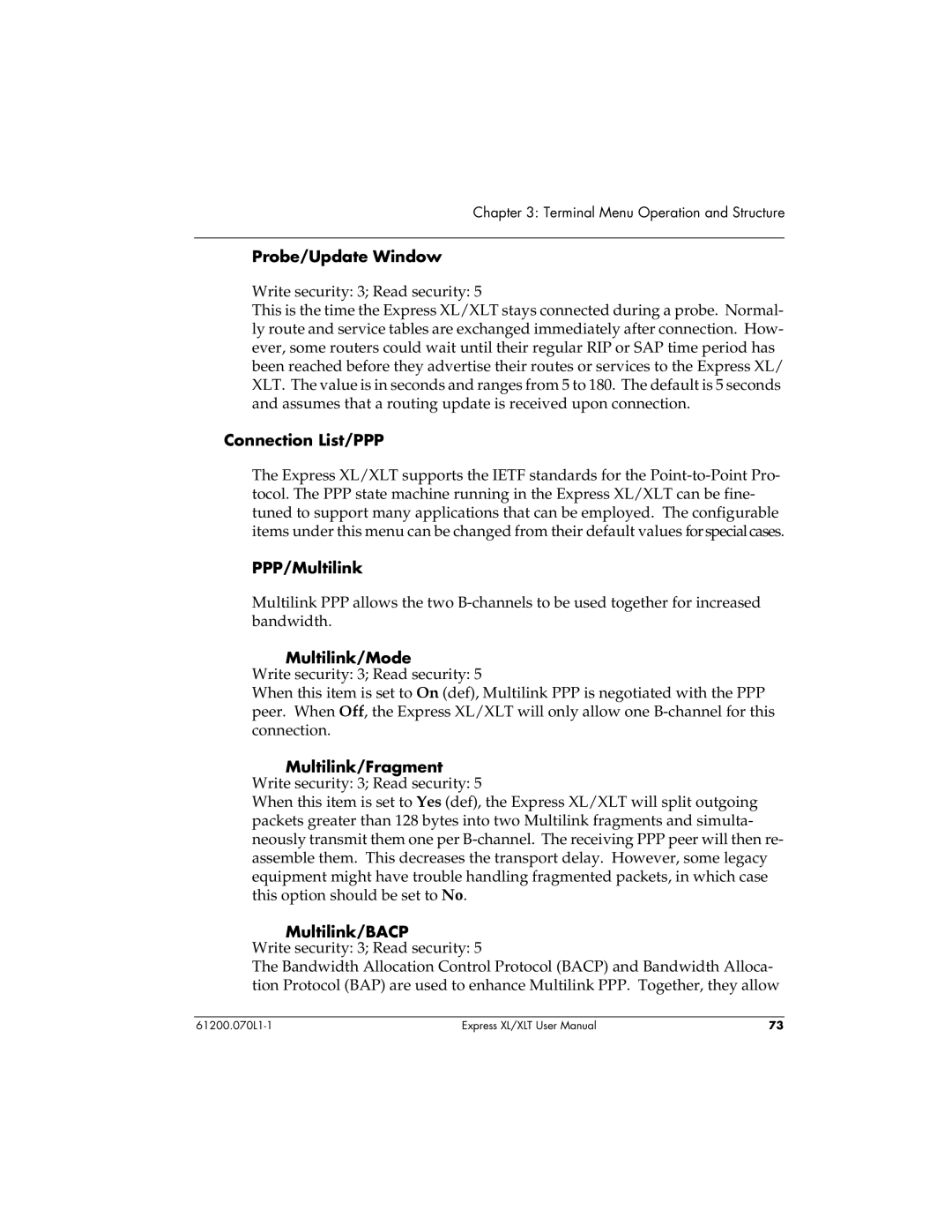
Chapter 3: Terminal Menu Operation and Structure
Probe/Update Window
Write security: 3; Read security: 5
This is the time the Express XL/XLT stays connected during a probe. Normal- ly route and service tables are exchanged immediately after connection. How- ever, some routers could wait until their regular RIP or SAP time period has been reached before they advertise their routes or services to the Express XL/ XLT. The value is in seconds and ranges from 5 to 180. The default is 5 seconds and assumes that a routing update is received upon connection.
Connection List/PPP
The Express XL/XLT supports the IETF standards for the
PPP/Multilink
Multilink PPP allows the two
Multilink/Mode
Write security: 3; Read security: 5
When this item is set to On (def), Multilink PPP is negotiated with the PPP peer. When Off, the Express XL/XLT will only allow one
Multilink/Fragment Write security: 3; Read security: 5
When this item is set to Yes (def), the Express XL/XLT will split outgoing packets greater than 128 bytes into two Multilink fragments and simulta- neously transmit them one per
Multilink/BACP
Write security: 3; Read security: 5
The Bandwidth Allocation Control Protocol (BACP) and Bandwidth Alloca- tion Protocol (BAP) are used to enhance Multilink PPP. Together, they allow
Express XL/XLT User Manual | 73 |
